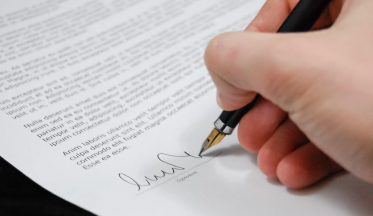Have Questions? Contact Us.
Since its inception, NYCLA has been at the forefront of most legal debates in the country. We have provided legal education for more than 40 years.
Good afternoon, everyone – and welcome to the New York County Lawyers Association’s Home of Law. This event – where we announce and honor the winners of our annual High School Essay contest – is a proud NYCLA tradition, but we haven’t been able to have it in person for quite some time. I’m so happy to be able to do that again.
The ten finalists we recognize today were selected from over 250 submissions from all over New York City. That’s really something to be proud of.
I’m going to say more about the essay contest in a moment, but first I want to say a little bit about the NYCLA itself.
We are one of the largest local bar associations in the country – and we were the first bar association in the world to accept attorneys regardless of their ethnicity, religion or gender. That’s been true since our founding in 1908 – which was a time when it wasn’t necessarily popular to be that inclusive. We’re proud of that history, and we continue to live it: diversity and inclusion will always be a big part of who we are.
This essay contest reflects another of NYCLA’s core values: civic education. And I want to offer special thanks to Marian Burnbaum, Chair of the Law Related Education Committee, who’s done so much for NYCLA and the Committee.
We also thank Larry Carbone, Program Chair of the Essay Contest, as well as all of the other members of the committee and everyone else who participated in reading and evaluating the essays.
Marian and Larry have worked tirelessly on this contest for years, and NYCLA is grateful for their leadership of this really important program.
We’re also grateful to the Justice Resource Center and its executive director Debra Lesser for working so closely with us in this particular endeavor. They do really great work, and we’re so fortunate to partner with them on this.
This contest is named for judge Richard Lee Price, so I want to tell you a little bit about him too. He was a champion of civic and law related education. But his work wasn’t only support and advocacy – he actually taught a high school course called Law for the Lay Person. The course helped students learn about legal issues through role-playing and mock trials.
Judge Price also received the American Judges Association’s highest award for education, and the New York State Bar Association’s highest award for public service.
And he worked on NYCLA’s Law Related Education Committee for probably more years than most of us can remember.
He passed away not long ago, and we still miss his compassion, his intellect, and his wisdom. How fitting, though, that we give these awards in his name.
This year’s essay topic – which asks whether Congress can amend the Communications Decency Act to require social media companies to remove content that Congress deems disinformation – was especially challenging. The tension between the bedrock principles that animate the First Amendment and the desire to protect society from the genuine threat that can be posed by disinformation on the internet is one that continues to vex many of the most accomplished and esteemed legal scholars.
And I had the privilege of actually reading the finalists’ essays.
Like those scholars, the students grappled with how to balance constitutional rights that were enshrined centuries ago with technologies that could not even have been imagined by our nation’s founders.
Like those scholars, they struggled with questions like whether disinformation that fosters the kind of fanaticism that drives some people to kill can become the kind of “clear and present danger” that the First Amendment allows us to regulate.
Like those scholars, they noted that disinformation about things like the safety and effectiveness of vaccines can create or exacerbate a public health crisis.
And like those scholars, they nevertheless worried about the broader implications of allowing the government to impose regulations on speech, or even to define what constitutes disinformation and what does not.
And they didn’t all agree on the answers.
In those essays I saw thought; I saw creativity; and I saw a genuine appreciation for social and historical context.
So now I want to say this to the students.
I’m so proud of all of you, I really am.
And I’m especially gratified to see you apply these skills to the study of this important legal issue.
The rule of law is fundamental to a free society, and it’s vital that all citizens learn about our rights and duties and how the law helps our society to function. I really encourage you to continue this study – even if you don’t ultimately make law your career (although I really do hope that some of you will).
There’s another thing you all excelled at here, which is also vitally important: writing. Writing is an essential skill for lawyers, but we lawyers are not alone in that respect. The ability to write clearly and persuasively will greatly benefit you in virtually any profession.
If the privilege of standing on this podium comes with some license to offer advice, one piece of it would be to keep honing your writing skills.
Okay, enough. I know you’re all anxious to move things along and get to the final results of the contest – and so far today you’ve all shown another really important trait that will stand you in good stead as you move forward in life: patience.
Thank you for that, for being here today, and for participating in our contest. You’re all winners!
